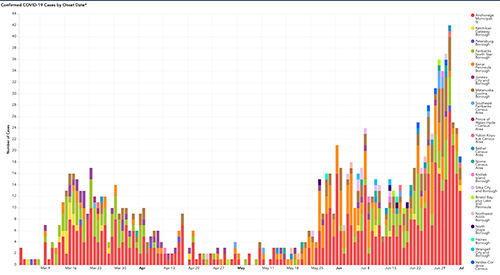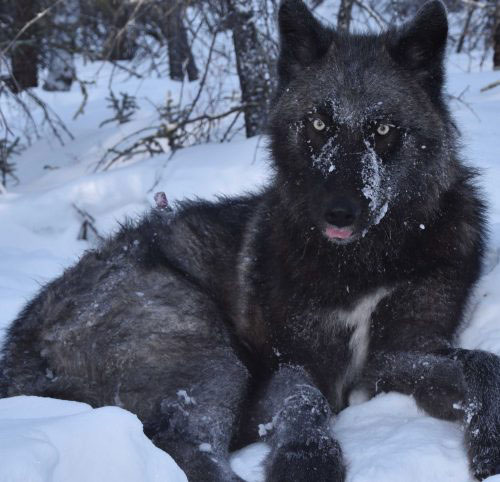
















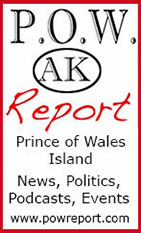

 Contact Contact 
 Webmail
Letters Webmail
Letters
 News Tips News Tips
 Copyright Info Copyright Info
 Archives Archives
Quick News
Search
 Alaska Alaska
 Ketchikan Ketchikan
 SE Alaska SE Alaska
Columns
- Articles
 Dave Kiffer Dave Kiffer
 Money Matters Money Matters
Historical
Ketchikan
 June Allen June Allen
 Dave
Kiffer Dave
Kiffer
 Louise
B. Harrington Louise
B. Harrington
Sports
 Ketchikan Links Ketchikan Links
Public Records
 FAA Accident Reports FAA Accident Reports
 NTSB
Accident Reports NTSB
Accident Reports
 Court Calendar Court Calendar
 Recent Filings & Case Dispositions Recent Filings & Case Dispositions
 Court Records Search Court Records Search
 Sex Offender Reg. Sex Offender Reg.
 Public Notices Public Notices
 Alaska Recall Alerts Alaska Recall Alerts
 Recalls.gov Recalls.gov
 AST Daily Dispatch AST Daily Dispatch
 KTN
Police Reports KTN
Police Reports
 Juneau Police Reports Juneau Police Reports
Weather,
Webcams
 Today's
Forecast Today's
Forecast
 KTN
Weather Data KTN
Weather Data
 AK
Weather Map AK
Weather Map
 AK Weathercams AK Weathercams
 AK Earthquakes AK Earthquakes

|
|

Tuesday
July 07, 2020
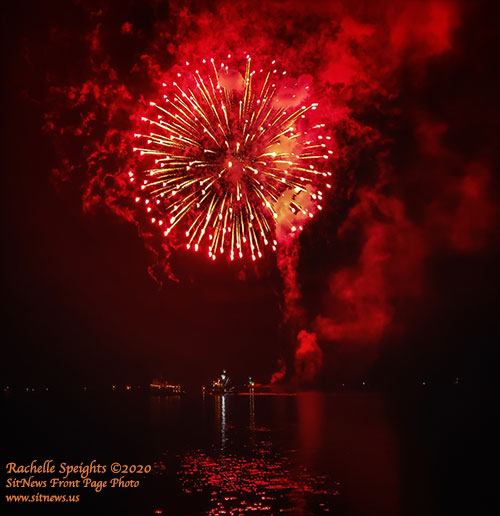
Fireworks Mark Ketchikan's 4th of July
Front Page Photo By RACHELLE SPEIGHTS ©2020
To have your photo featured on the front page,
email your photo(s) to editor@sitnews.us |
|
Southeast Alaska Historical: The Hygiene sailed Southeast waters looking for TB; State focused on stopping 20th Century plague By DAVE KIFFER - In the first half of the 20th Century, tuberculosis was rampant in Alaska.
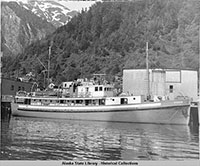
M/S Hygiene at dock in Juneau.
Collection:
Alaska Dept. of Health & Social Services. Photographs, ca. 1940s-1960s.
Creator: Paul, William L. Jr.
Courtesy Alaska State Library - Historical Collections |
According to Bruce Chandler's April, 2017 report in the State of Alaska's Epidemiology Bulletin, TB has been in Alaska for more than 1,500 years, but it only started to effect residents in a significant way as trappers, prospectors and other outsiders began arriving in the mid 1800s.
"During that period, TB was a leading cause of death in the U.S. and in many European countries," Chandler wrote. "Tuberculosis spread rapidly among Alaska Native people, a susceptible population living under conditions ideal for TB transmission, especially those with close contact to the incoming colonists. During the first half of the 20th Century, Alaska had some of the highest rates of TB ever seen anywhere in the world."
For example, Chandler noted in some areas of Alaska, up to 75 percent of the Native children tested had positive skin tests. In Southeast Alaska, the percent of positive tests for all residents was more than 30 percent. The numbers peaked in the 1930s and 1940s. In those years, when the United States tuberculosis death rate was 56 per 100,000, Alaska Natives experienced a stunning death rate of 1,302 per 100,000.
One of the biggest challenges facing the territory as it attempted to deal with the outbreak during World War II and after was the isolation of many of the villages and small towns, particularly along Alaska's thousands of miles of coastline.
To deal with the crisis longtime Territorial Governor Ernest Gruening appointed Dr. Earl Albrecht as Alaska's first full time Territorial Commissioner of Health. One of Albrecht's first acts was to establish a "fleet" of boats (two originally) to roam Southeast, Southwest and Northwest Alaska, visiting the far-flung villages and towns, with the equipment to test residents for TB. Eventually, those boats even reached inland communities via rivers like the Yukon and the Kuskokwim.
The original boats were the "Health" which patrolled northern Alaska and the rivers, and the "Hygiene" which was primarily based in Southeast. In 1998, Susan Meredith published a book called "Alaska's Search for A Killer," the story of the two years she spent working on the Hygiene as the X-ray technician when she was a young woman between 1946 and 1948.
The book reads like a diary of the time she spent on board: The places the boat visited, the challenges it faced, the people they encountered. The Hygiene based primarily in Juneau, but during her two years on board the boat went as far north as Norton Sound and St. Lawrence Island. In between there and Ketchikan in hit just about every Alaskan community, big and small.
"The Hygiene's primary mission was to screen the entire coastal population for tuberculosis," Meredith wrote in 1998. "We were to identify other serious medical problems that appeared and treat them when possible."
The main reason the Health Department was screening for TB was to arrange for the most serious cases to be sent out of state to further dampen the spread. At a time when several thousand Alaskans had TB, there were only 70 hospital beds, and one small sanitorium in Skagway, for the patients to convalesce. Most TB patients would have to be sent South for treatment.
Meredith's story starts out the Hygiene's shake-down cruise which went from Juneau to Tenakee Springs, where it discovered the majority of the residents had TB. Unfortunately, the majority also refused any sort of treatment, which Meredith found would be a common refrain in Alaska, particularly amongst the white residents, the aging fishermen, hunters and miners that already had a significant "fatalist" streak. The boat continued on to Angoon and Tyee before returning to Juneau and then leaving for Ketchikan. From Ketchikan, the boat visited Kasaan and Metlakatla and returned to Ketchikan before heading out to Rose Inlet, Waterfall, Hydburg, Craig and Klawock.
"Visitors started to arrive shortly after we were secured to the dock (in Ketchikan)," Meredith wrote. "When the tide was high they stepped aboard easily, but when the tide went out...the only way on and off the ship was a 20-foot ladder. We who worked on the ship wore jeans and sneakers, but the ladder was a frightening barrier for many of the Ketchikan women, particularly those in high heels and skirts, or those carrying babies."
It was quickly arranged for the Hygiene to dock at City Float and access improved. In that initial month-long visit, 3,000 of the 5,000 residents were screened. The town's five doctors, two newspapers and nine churches strongly encouraged all residents to be tested.
"In the past, many white Alaskans had dismissed TB as a disease only of the Natives," Meredith wrote. "They did not want to accept that the TB mortality rate in the white population of Alaska was three times higher than in the States."
While most of the tests turned out to be negative, the numbers in both the white and native populations were higher that originally estimated when the trip was being planned.
During their rare moments of free time, Meredith and other staff members were wined and dined by the Ketchikan locals. Meredith ended up going sport fishing and being invited into numerous local homes.
"The conversations ranged from whether Ketchikan's water should be chlorinated, a hot issue, to the merits and disadvantages of statehood," Meredith wrote. "One memorable night a couple of our new friends invited us on a hayride in a truck to a barn dance of schottisches and polkas. It was especially enjoyable because we had always associated hayrides with farming communities, not fishing centers. Moonlight added to the atmosphere and it was a nice contrast to the many nights spent X-raying." - More....
Tuesday PM - July 07, 2020
|
|
Fish Factor:
Biggest Red Run Building at Bristol Bay; Three Decisions for Pebble Mine By LAINE WELCH
- The biggest red salmon run in the world is building at Bristol Bay.
Up to 50 million fish could surge into its eight river systems in coming weeks, on par with past seasons. When it’s all done, the fishery will provide nearly half the global supply of wild sockeye salmon.
But this summer is different.
Not only due to the restrictions and fears and economic chaos caused by Covid-19. At the height of the fishery, fishermen will learn if a massive gold and copper mine that’s been hanging over their heads for two decades gets a greenlight from the federal government.
In mid-July, the U.S. Army Corps of Engineers will unveil its federal “record of decision” on the permit application by Northern Dynasty of Vancouver, Canada to build the Pebble Mine at the sprawling mosaic of headwaters that provide the spawning and rearing grounds for the region’s salmon.
Three decisions are possible for the mine: issue a permit, issue a permit with conditions, or deny the application.
“As Bristol Bay’s fishermen head out to the fishing grounds for the next six weeks, we are counting on Congress to protect the 14,500 workers directly employed by the commercial salmon fishery,” said Andy Wink, director of the Bristol Bay Regional Seafood Development Association. “Pebble Mine is a threat to Alaskan jobs, America’s food security, and a salmon resource unparalleled anywhere on the planet.”
“The EPA’s own science shows that this project poses an unacceptable risk to our country's greatest remaining wild salmon runs,” said Katherine Carscallen, director of Commercial Fishermen for Bristol Bay. “We look to Alaska’s senators for their leadership and implore the EPA to use its authority under the Clean Water Act to veto Pebble’s permit.”
Such calls for help will likely go unheard.
Alaska’s two Republican Senators and lone Congressman have staunchly stood behind the Pebble project’s right to go through a rigorous and fair permitting process and have been tightlipped about their opinions in the meantime.
Now that the process is pretty much a wrap, will they finally tell Alaskans if they are “for or agin it?”
“Congressman Young remains committed to seeing the process fully completed, but without a finished report, there is nothing that can be commented on,” responded press secretary Zack Brown.
“The federal permitting process is ongoing, and until there is a decision document to review there is nothing on which to provide comment,” said Mike Anderson, Communications Director for Senator Dan Sullivan.
Senator Murkowski’s office did not respond but she would likely express “concern.”
Every survey and poll ever done has shown that a huge majority of Alaskans from all regions oppose the Pebble Mine. But equivocating with constituents is the way of today’s politicians.
Former Senator Ted Stevens (R-AK) in 2008 stated emphatically and often: “I’m not opposed to mining, but Pebble is the wrong mine in the wrong place.” Love him or not, you always knew Uncle Ted’s stance on anything you asked him in his 40 year tenure in the U.S. Senate.
Alaska’s current reps in Congress might not dare come clean about Pebble, but investors are wiping their hands of the project.
Global investment banking firm Morgan Stanley, once the fourth largest institutional shareholder in Northern Dynasty, on March 31 dumped 99.14% in its shareholdings in the project, reported the National Resources Defense Council and CNN Money.
“While the reasons for Morgan Stanley’s recent sell-off are unknown, the global investment company is known as a strong proponent of the principle that environmental and social responsibility are essential to long-term investment success,” the NRDC said.
That sell-off is just the latest of Pebble put-downs on a global scale.
In 2011, Mitsubishi Corporation sold out. In 2013, Anglo American abandoned its partnership, walking away from a nearly $600 million investment. In 2014, Rio Tinto donated its shares to two Alaskan non-profits: Alaska Community Foundation and the Bristol Bay Native Corporation Education Foundation. In 2018, First Quantum Minerals walked away after five months from a $37.5 million investment and option for a 50 percent partnership. Also in 2018, BlackRock zeroed out its shareholdings.
New York investment firm Kerrisdale Capital Management called Northern Dynasty’s plans “worthless,” “a value-destroying boondoggle,” “doomed,” “politically-impaired” and “commercially futile.”
“The cash-strapped 100 percent owner’s desperate hope—its “business plan”—is that the issuance of a permit by the Army Corps will attract new investment, a new partner, or a buy-out,” the NRDC said.
Despite its claims of a “smaller footprint” for Pebble, Northern Dynasty states on its website that its “principal asset, owned through its wholly owned Alaska-based U.S. subsidiary, Pebble Limited Partnership (“PLP”), is a 100% interest in a contiguous block of 2,402 mineral claims in southwest Alaska, including the Pebble deposit.”
Every landslide begins with a single Pebble…
Building a mine like Pebble (or Donlin) can be compared to building a new Alaska city. - More...
Tuesday PM - July 07, 2020 |
|
Fish Factor:
Pandemic hits to seafood industry demand and pricing will be long lasting
By LAINE WELCH
- The global seafood industry will experience lasting impacts from the COVID-19 pandemic, including reduced demand and pricing.
That is the conclusion of the State of World Fisheries and Aquaculture report produced every two years by the Food and Agriculture Organization (FAO) of the United Nations, the only report that tracks global fisheries and food trends.
This year it included a special focus on the pandemic which has toppled seafood markets and supply chains around the world. The report forecasts that global seafood production will be down 1.7 percent (6.6 billion pounds) and the trade value of seafood will decrease by nearly $6 billion.
Of that, wild capture fisheries are projected to decrease by 2 percent (nearly 4.2 billion pounds), while aquaculture production is expected to decrease by 1.4 percent (2.6 million pounds).
The virus impacts also have pushed down prices. The global Fish Price Index showed an 8.3 percent drop in fish prices between January and May of this year compared to the same time in 2019.
The closure of restaurants has drastically curtailed seafood demand, the report said, leading to the “evaporation of foodservice demand in many important markets.”
“Effects on retail sales have been more mixed, however, with demand for packaged and frozen products boosted as households look to stock up on non-perishable foods,” it added.
“Whatever the timeframe, prolonged market downturn can be expected even after current restrictions are lifted or relaxed,” the report said. “Luxury products and species that are primarily marketed fresh and through foodservice will be the most heavily affected. Most seafood trade events will continue to be postponed or cancelled for some time to come.”
Salmon has been the most valuable traded seafood commodity since 2013 and accounted for 19 percent of the total value of internationally traded fish products in 2018. Production growth is expected to increase, but at a much slower pace.
A worldwide drop in demand for salmon of at least 15 percent is projected and retail sales are not expected to recover for some time, the FAO said, adding that retail sales of fresh salmon will be especially hit hard.
More upbeat highlights: Seafood is one of the world’s most widely traded food commodities and global fish consumption has increased by 3.1 percent on average from 1961 to 2017, higher than all other animal proteins. Estimates peg global per capita fish consumption at over 45 pounds in 2018.
World fisheries produced a record 212 billion tons in 2018, 5.4% more on average from the previous three years. The increase was due mainly to anchoveta catches of 15.4 billion pounds from Peru and Chile. Alaska pollock ranked second at 7.5 billion pounds, followed by skipjack tuna at 7 billion pounds.
Global aquaculture production also reached another all-time record of nearly 252 billion pounds live weight in worth nearly $264 billion in 2018.
The US ranks 6th overall for marine fish captures following China, Indonesia, Peru, India, and Russia. The Northwest Pacific had the highest production at 25% of global landings.
It’s estimated 59.5 million people were engaged in fishing and aquaculture in 2018; women accounted for just 14%.
The total number of fishing vessels, from small non-motorized boats to large at-sea processors, was 4.56 million, down 2.8% from 2016. Asia still had the largest fleet, estimated at 3.1 million, 66% of the total. Nearly 80% of current landings come from biologically sustainable stocks.
The Mediterranean and Black Sea had the highest percentage of stocks fished at unsustainable levels (62.5%), followed by the Southeast Pacific (54.5%) and Southwest Atlantic (53.3%).
In contrast, the Eastern Central Pacific, Southwest Pacific, Northeast Pacific and Western Central Pacific had the lowest levels (13–22%).
Too much seafood is either lost or wasted around the world– 35%, the UN report says. Seafood is recognized as not only some of the healthiest foods on the planet, but also as some of the least impactful on the natural environment. - More...
Tuesday PM - July 07, 2020
|
|
Alaska: Long-distance champions of Alaska By NED ROZELL - A scientist recently wondered which animal travels farthest across the landscape in one year. In doing his research, he found a few Alaska creatures near the top of the list.
Kyle Joly is a biologist with the National Park Service in Fairbanks. He works for both Gates of the Arctic National Park and Preserve and Yukon-Charley Rivers National Preserve, mostly on the large mammals that roam free there. Much of his recent work has been on the Western Arctic Caribou Herd.
Joly is also the author of “Outside in the Interior,” a comprehensive guidebook to human-powered trips in the Fairbanks area and beyond. The book is a wonderful covid companion for those of us in middle Alaska.
A few years ago, Joly wondered if he could quantify an often-heard hypothesis that caribou were the animals that traveled farthest across the surface of Earth. As a boy, he had watched a television show on wildebeests in Africa that inspired him and later made him curious about which animal moves the most in a calendar year.
He was not interested just because he loves to explore and admires animals that undertake long-distance migrations. As a biologist, he thought it would be useful to define the space an animal needs to exist. Knowing that, people might be able to set aside swaths of country for other life forms, rather than transforming forest and tundra into roads, gravel pads and buildings.
His thought experiment soon turned into a worldwide search for long-distance travelers. His colleagues introduced him to people on the other side of the globe studying khulans (also known as Mongolian wild asses, handsome creatures stalked by wolves in Asia) and white-eared kobs (antelopes roaming the grasslands of Africa).
Gathering information from GPS collars biologists have fitted to the necks of wild creatures all over the world, Joly found the following:
A male gray wolf from Mongolia traveled 4,503 miles in one year. That’s like walking from Los Angeles to Washington, D.C., in the spring, and walking back in the fall.
A female Alaska wolf collared in Denali National Park trotted over tundra and mountains for 3,500 miles one year. If she had headed south in a straight line for those 365 days, she would have ended up in San Diego (but would have encountered fewer caribou).
Khulans wandered as much as 3,800 miles through the high grasslands of Mongolia in a one-year period.
Caribou in Alaska and Canada click along the tundra as much as 3,000 miles each year. Much of that landscape passes beneath their hooves during migration to and from spring calving grounds on breezy northern tundra. - More...
Tuesday PM - July 07, 2020 |
|
Analysis: Supreme Court hands victory to school voucher lobby – will religious minorities, nonbelievers and state autonomy lose out? By FRANK S. RAVITCH - The Supreme Court’s recent decision that Montana cannot exclude donations that go to religious schools from a small tax credit program could have consequences felt far beyond the state.
The 5-4 ruling in Espinoza v. Montana Department of Revenue, which came down June 30, follows on from recent cases that have expanded what counts as discrimination against religion under the U.S. Constitution, making it harder for states to deny grants to faith-based institutions.
From my perspective as a scholar of law and religion, this latest ruling could massively limit states’ ability to exclude religious schools from all sorts of funding, including controversial voucher programs which allow state funds to be used by parents to send children to a private school. And rather than preventing religious discrimination, the court’s decision may actually support a system that discriminates against religious minorities and those of no faith.
A win for voucher advocates
The Espinoza decision was quickly hailed as a major win by supporters of school vouchers, including Education Secretary Betsy DeVos. It isn’t the first time they have cheered the court.
In 2002, the Supreme Court, in Zelman v. Simmons-Harris, ruled in favor of a voucher program in Ohio which overwhelmingly benefited religious schools. The court held that the program did not violate the U.S. Constitution’s Establishment Clause which limits government support for, and promotion of, religion.
That decision broke with a long line of previous cases, which held that government could not use taxpayer dollars to fund religious education. - More...
Tuesday PM - July 07, 2020
Analysis: Supreme Court reforms, strengthens Electoral College By MORGAN MARIETTA - The Supreme Court has ruled unanimously that states can require members of the Electoral College to cast their presidential ballots according to the state’s popular vote. That will both preserve the Electoral College as a part of American democracy and ensure it functions as most people believe it does: turning the presidential election into a state-by-state popular contest.
The decision marks a failed attempt by the Hamilton Electors movement to allow electors to vote their consciences, as Alexander Hamilton had hoped, in favor of letting states dictate the rules, as the Constitution allows.
An American invention
The constitutional system of presidential selection is a set of uneasy compromises worked out at the very end of the Constitutional Convention in 1787.
The framers could not decide whether the choice of a president should be made by Congress or the states.
They also could not agree whether all states should have equal power in the selection, or if more populous states should have more say.
And they didn’t agree whether a state’s choice should be made by local elites (state legislators) or the masses (all of the voters).
In the end, the Committee on Unfinished Parts created a unique governmental structure that compromised on all of these debates. Unlike many contemporary Americans, the founders were comfortable with such compromises and immediately approved the new mechanism of presidential selection.
A small number of citizens called electors would meet in each state to decide the presidency collectively. Congress would enter the picture only if the electors did not reach a majority decision. The number of electors would equal the number of senators and representatives in Congress, which means that small states had greater power than their population would suggest, but still not as much as big states. - More...
Tuesday PM - July 07, 2020
|
MONEY MATTERS: HOW TO DECIDE WHICH SHARES TO SELL FROM YOUR PORTFOLIO WHEN YOU NEED TO SELL SOME By Mary Lynne Dahl, Certified Financial Planner™ - At some point as an investor, you may need some cash from your investment portfolio. It may be for a major purchase or it might be that you need ongoing income. Regardless of the reason for needing the cash, you will face the question of how to decide which shares to sell to get the cash or income that you need.
In addition to selling shares to get some cash, you may also want to sell shares in order to change the balance of your portfolio. For example, if you decide that you have too much invested in financial stocks and would like to replace that part of your overall portfolio with shares of some other sector of the economy, the way to do that is to sell some of the financial fund shares and reinvest the money from the sale of those shares in another type of fund which invests in a different sector. This is called “rebalancing”. It is often done to keep a portfolio in a specific mix of differing types of funds and is a smart way to manage a portfolio.
Both are reasons to sell shares. One is for cash to spend and the other is to “rebalance” the portfolio. So, how do you do that? Do you use a strategy or do you just throw darts? What is the best way to approach the act of selling shares? - More...
Tuesday PM - July 07, 2020
DAVE KIFFER: Papa Joe - Most people define "family" in one of two different ways.
For some, it is blood kin, the relatives that the Creator chose for us. The people, according to Robert Frost, that have to take you in when you show up on their doorstep.
For others, it is the people we gather around us as life progresses, whether they are "related" or not. The people who leave your life only through the most painful of amputations. The "family" we choose and choose us.
Sometimes, the concept of family does not easily fit into either category. I was thinking about that recently when I heard that Joe Kelsey had passed away.
Joe was the long-time history professor at Ketchikan Community College. He was an ex-Marine, a veteran of bloody battles in Korea and Vietnam. But he also was a father, even though, as far as I know, he never had kids of his own.
I first came in contact with Joe after my freshman year in high school. My father had just died and one of my friends suggested we go to something called "Sea Kings" and check it out. - More...
Tuesday PM - July 07, 2020
JEFF LUND: To: A Legend - Role models who inspire you by what they have don’t stir you on a molecular level. They don’t figure into your soul like someone who inspires you by how they live.
Bill Stricker did. While many people attempt to appear virtuous or successful to others, Bill made you want what he had. Not the stuff, success or the brief NBA career, but the joy, the integrity, the spirit. He created a massive wake during his life that still rolls on after his passing.
In a time that wants to vilify the phrase “be a man” Bill mentored myself and many others in what it means to be a man, not through lecture, but through the way he lived. He wasn’t the guy trying to sell you anything in the way people today want to monetize or take credit for inspiration. He cared, and though he had to know he changed lives, he never seemed to keep score. I’m grateful that I listened and allowed myself to be mentored by a man of substance, not sizzle. Any good or positivity that I am able to provide in this life is because men like Bill Stricker mentored me in what it means to be a man. A real man, because Bill was a true gentleman. Not in the way that was hijacked by condescending, emotionless, well-dressed egotists but in the way of a kind, gentle but powerful, put-together man focused on his own inward mechanics, more than his outward appearance. Bill Stricker was more put together, gracious and impactful in a cotton polo and jeans than anyone I’ve ever met wearing a suit. - More...
Tuesday PM - July 07, 2020
|
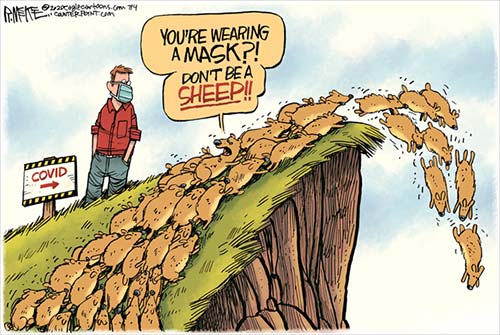
Political Cartoon: Covid Lemmings
By Rick McKee ©2020, CagleCartoons.com
Distributed to paid subscribers for publication by Cagle Cartoons, Inc.

Political Cartoon: Mask for a mask
By John Darkow ©2020, Columbia Missourian
Distributed to paid subscribers for publication by Cagle Cartoons, Inc.

Political Cartoon: Unmasked Man
By Steve Sack ©2020, The Minneapolis Star-Tribune, MN
Distributed to paid subscribers for publication by Cagle Cartoons, Inc. |
When the Chamber of Commerce and Unions Agree on Job-Saving Measures, Congress Should Get it Done By Lee Saunders - Why is Mitch McConnell taking the Senate on a two-week vacation while much of the country is experiencing spikes in coronavirus cases, and millions of public service workers and working people continue to lose their jobs due to massive budget shortfalls? Elected leaders, voters and business interests have repeatedly called for the aid. And this aid is supported by leading economists who have served presidents of both parties.
Senator Murkowski and her colleagues won’t get a vacation from voters who are anxious about cuts to essential services we need to fight the pandemic and get our economy moving. As senators return home for a two-week recess in July, public service workers and community allies are turning up the volume on advocacy. We are placing ads, calling, and emailing Senate offices regarding the urgent need for $1 trillion in federal aid to states, cities and towns. The message is: #FundTheFrontLine.
Every day that the Senate delays on delivering at least $1 trillion in aid to states, cities and towns, public service workers continue to receive pink slips. The public services these everyday heroes provide to our communities are needed now more than ever, as another wave of the virus threatens more lives and the prospect of economic recovery.
A new Kaiser Health News report lays out in stark detail what AFSCME has been saying for months: Cuts to health care and public services since the Great Recession are preventing us from beating this virus. Now, as the Senate fails to deliver aid, health systems that were already short-staffed and under-resourced are seeing layoffs, just when cases around the country are spiking.
No senator has an excuse for ignoring the facts. Here’s how bad the economic situation is for Alaska, as well as what needs to get done to keep essential services going: - More...
Tuesday PM - July 07, 2020
 |
Sovereign Iñupiat for a Living Arctic response to Alaska Congressional Delegation regarding the Reality of Racism By Siqiñiq Maupin - Recently the Alaska Congressional delegation, Don Young, Dan Sullivan, and Lisa Murkoski shamefully attempted to utilize this moment of racial spotlight to benefit their own profit interests, by implying that global banks' decisions to divest from the fossil fuel industry in Alaska is racially fueled. Banks around the world are divesting from activities that contribute to climate change AND they are listening to Indigenous Peoples calling for the protection of our ways of life. Both Gwich’in and Iñupiat Peoples have made official resolutions to protect the Arctic National Wildlife Refuge, therefore divesting from oil and gas development in the Refuge is answering the calls of Indigenous Peoples, it is the right thing to do. - More...
Friday PM - June 26, 2020
 |
It’s Past Time for Ketchikan to Mandate Masks By Ghert Abbott - Following the events of last week, it is clear that a single COVID-19 sufferer disregarding the existing state restrictions is all that it takes to threaten an outbreak with “wide community spread.” In light of this fact, the question naturally comes to mind: why hasn’t the City Council and the Borough Assembly passed ordinances mandating the wearing of facial masks?
With the premature end of most lockdowns, COVID-19 infections are once again increasing across the country, including in California, Oregon, and Washington state. A COVID-19 vaccine is nowhere on the horizon and is likely several years away, so our town will be dealing with this health threat for some time to come. More COVID-19 cases will come here and slip through our state’s inadequate detection system – it is a simple inevitability. When that happens, it would be better for Ketchikan if there was an additional line of defense against “wide community spread” in the form of universal mask wearing. A number of U.S. states, cities, and towns have already implemented mandatory mask laws or are preparing to do so. - More...
Friday PM - June 26, 2020
 |
Captain James Cook statue in Anchorage By John Suter - I think now is the time to replace the Captain James Cook statue at Resolution Park with a AOC statue. Alexandria Ocasio Cortez, congresswoman from New York. is the greatest intellectual of our time. She is the mother of the Green New Deal that will save mankind from world extinction. Now is the time to get onboard with this change before it is too late. - Letter link...
Friday PM - June 26, 2020
 |
Response to Roger Marks: Oil profits in Alaska By Ray Metcalfe - Roger Marks: Last November 13th, you, in an op-ed printed in the Anchorage Daily News, accused me of misleading Alaskans in my November 5th article comparing ConocoPhillips' $26 per barrel net profit in Alaska with their profits "in the rest of the world." You said, "Metcalfe is comparing the oil profits in Alaska, where we produce 100% oil, with the combined oil and natural gas profits everywhere else." In response to another writer's similar comparison, you said, "it was like comparing apples to oranges."
So, as you wish, I'll compare Alaska's costs to three winning bids for production of crude, just like Alaska's pure 100% crude. - More...
Friday PM - June 26, 2020
RIGHT WING CRAZY TALK AND THE BOOGALOO BOYS By David G. Hanger - Let’s start out by noting that “defunding the police” as political mantra or slogan is almost as dumb as Trump holding a rally in Tulsa on Juneteenth. I rather imagine a whole lot more of you in the past week or so have learned something about both the Tulsa Massacre of 1921 and Juneteenth, the day the slaves of Texas learned they were free; the day of Jubilee.
That aside, I would encourage Mr. John Suter and many others of you to seriously evaluate which way your flags are waving. “Antifa,” for example, is not an entity in any sense of the term, not an organization; it is just a label. Rather than continuously slurping the kool-aid of the Joseph Goebbels School of Journalism and Propaganda that gives you nothing substantive except a severe case of Jello- brain, and otherwise parrot-like conduct and thought, try reading the police reports and the FBI reports of this series of demonstrations that have been occurring nationwide since Memorial Day weekend. - More...
Friday PM - June 26, 2020
 |
Ketchikan City Council or Antifa what is the Diference? By Rex Barber - Progressivism, Communism, Nazism, Antifa, their foundation is all the same socialism and a profound hatred for America. The marrow of these peoples sole is truly saturated with human excrement. Across America they pillage and riot completely immune from prosecution by the law . Simply because it fills the end goal agenda of the fore mentioned. Bring America to its knees and transform it into a socialist oligarchy.
And what does the Ketchikan City Council do when they have a chance to celebrate America and tell all these low lives to go pack sand. They side with progressivism, Nazism, Communism, and Antifa. All in the name of looking after are health? that lie didn’t even require the imagination of a pencil eraser. Covid 19 is here to stay no mask, or amount 0f isolation is going to change it. Only common sense and hygiene by the individual will help.- More...
Friday PM - June 26, 2020
Please do not vote for Trump By Hallie Engel - Please listen to me. Consider my words carefully.
Donald Trump doesn't care if you die. He does not care. Not one bit.
Throughout his presidency, he has helped the wealthy and well-connected. He has not helped normal people, because he does not care about them.
Until the epidemic, the effects of this were somewhat harder to see. When it caused deaths, it was a little more indirect and could be blamed on other things. Now that we have a lethal virus making its way around the world, things have become much clearer. - More...
Friday PM - June 26, 2020
Email letters, opinions, OPEDs to editor@sitnews.us
|
Articles &
photographs that appear in SitNews may be protected by copyright
and may not be reprinted or redistributed without written permission
from and payment of required fees to the proper sources.
E-mail your news &
photos to editor@sitnews.us
Photographers choosing to submit photographs for publication to SitNews are in doing so, granting their permission for publication and for archiving. SitNews does not sell photographs. All requests for purchasing a photograph will be emailed to the photographer.
|
|









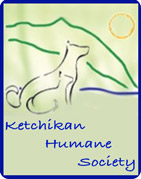


The Local Paper is
available online.
Click here for this week's printed edition (PDF)


|
|

![]() Contact
Contact ![]()
![]() Webmail
Letters
Webmail
Letters![]()
![]() News Tips
News Tips![]()
![]() Copyright Info
Copyright Info![]() Archives
Archives![]() Alaska
Alaska![]() Ketchikan
Ketchikan![]() SE Alaska
SE Alaska![]() Dave Kiffer
Dave Kiffer![]() Money Matters
Money Matters ![]() June Allen
June Allen![]() Dave
Kiffer
Dave
Kiffer![]() Louise
B. Harrington
Louise
B. Harrington ![]() Ketchikan Links
Ketchikan Links![]() FAA Accident Reports
FAA Accident Reports ![]() NTSB
Accident Reports
NTSB
Accident Reports![]() Court Calendar
Court Calendar![]() Recent Filings & Case Dispositions
Recent Filings & Case Dispositions ![]() Court Records Search
Court Records Search![]() Sex Offender Reg.
Sex Offender Reg.![]() Public Notices
Public Notices![]() Alaska Recall Alerts
Alaska Recall Alerts![]() Recalls.gov
Recalls.gov![]() AST Daily Dispatch
AST Daily Dispatch![]() KTN
Police Reports
KTN
Police Reports![]() Juneau Police Reports
Juneau Police Reports ![]() Today's
Forecast
Today's
Forecast![]() KTN
Weather Data
KTN
Weather Data![]() AK
Weather Map
AK
Weather Map![]() AK Weathercams
AK Weathercams![]() AK Earthquakes
AK Earthquakes






















